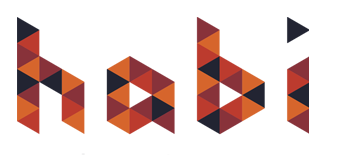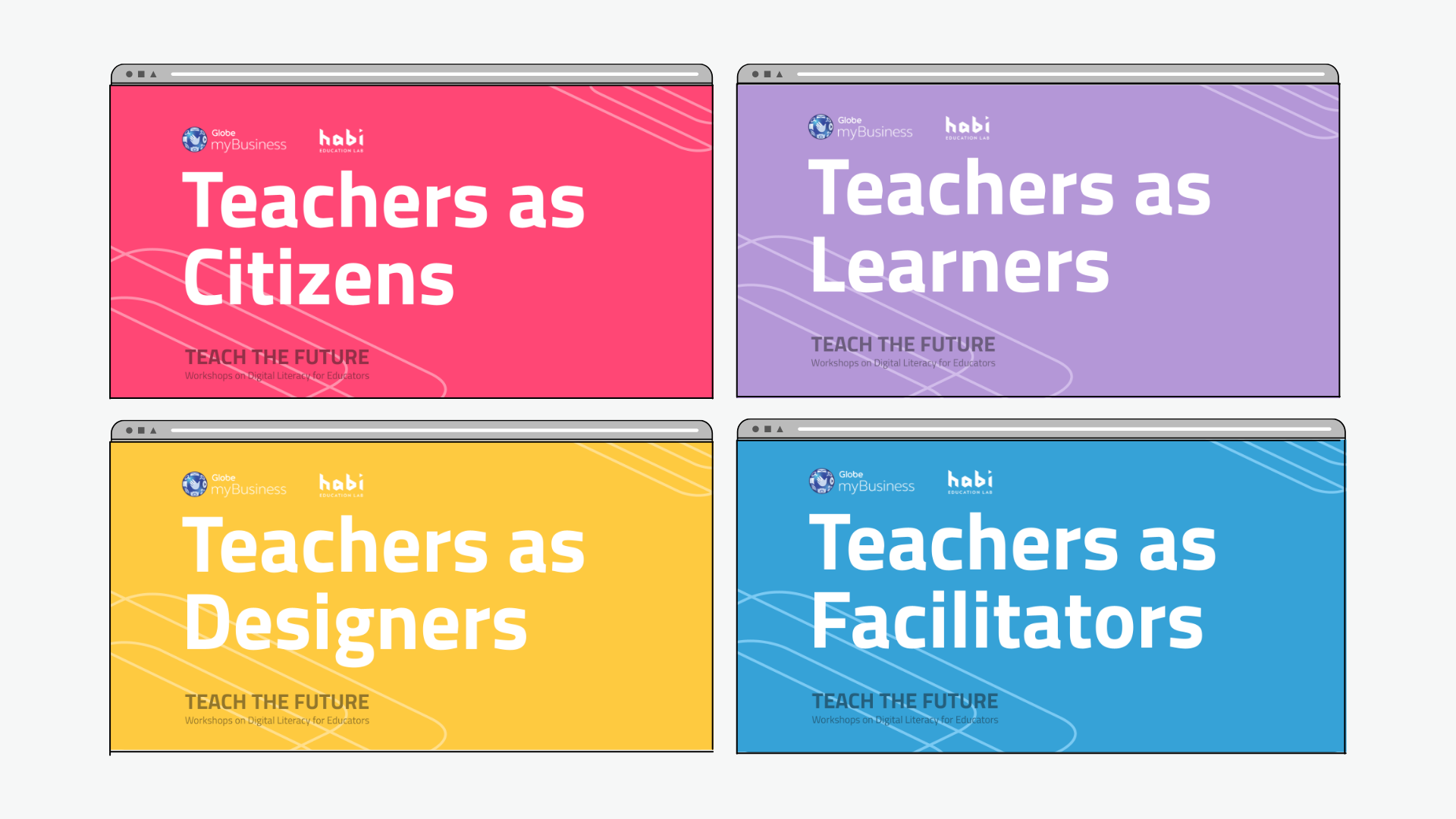The Spark Workshops aimed to equip teachers with digital literacy skills that would empower them to be models of responsible and effective use of technology for teaching. The overall goals of this program were to boost teacher confidence and enhance their competence in utilizing digital tools for their education work.
To accomplish these goals, we developed four workshop types that were rooted in competencies developed by the International Society for Technology in Education (ISTE):
- Teachers as Citizens
- Teachers as Learners
- Teachers as Designers
- Teachers as Facilitators
Each of these workshop types consisted of live, three-hour sessions that brought teachers, school administrators, and Habi facilitators from all over the country together – all for the sake of digital literacy skill-building.
Task
How might we enhance teacher confidence and competence in using digital technology for teaching?
Teachers as Citizens
For this workshop, we challenged teachers to practice curiosity and critical thinking in their consumption of media and information online. Given the abundance of information - and the rampancy of misinformation - on the internet, we hoped to equip teachers with safe, legal, and ethical values that they could model for their students later on.
Teachers as Learners
With this workshop, we wanted to inspire teachers to improve their teaching practice by reframing their mindset around their personal learning journeys. We asked the teachers to set learning goals for themselves, with new learning sciences in mind, to enhance and update their online teaching practice.
Through this collaborative goal-setting session, we hoped to develop meaningful networks among the teachers to provide new learning opportunities that would help them improve upon their work together.
Teachers as Designers
In this workshop, teachers were introduced to Habi’s classic learning experience design framework. Through this introduction, we hoped to give teachers more tools to design flexible and inclusive online learning experiences for students in different digital contexts.
To do this, we asked teachers to bring lesson plans from their in-person teaching days and translate them into online learning experiences through our storyboards and prototypes. They did this alongside their fellow teachers to collaborate on new ways of teaching for all their students adjusting to online learning.
Teachers as Facilitators
This last workshop type aimed to contribute to teachers’ facilitation skills in their newest space for teaching - the online classroom. During this session, teachers articulated their skill sets from in-person classroom facilitation and translated them into an online context. They also shared their individual best practices to the group, allowing discussions, collaborations, and networks to flourish among these educators from wildly different schools and backgrounds.




